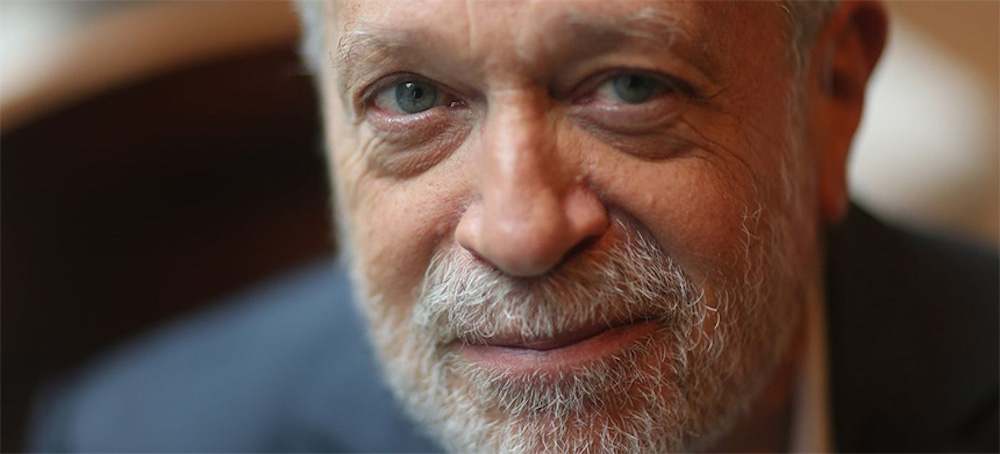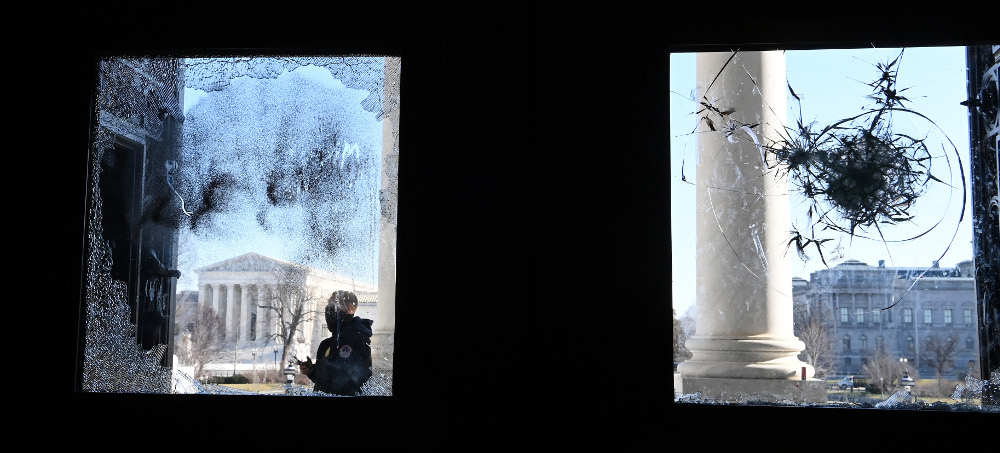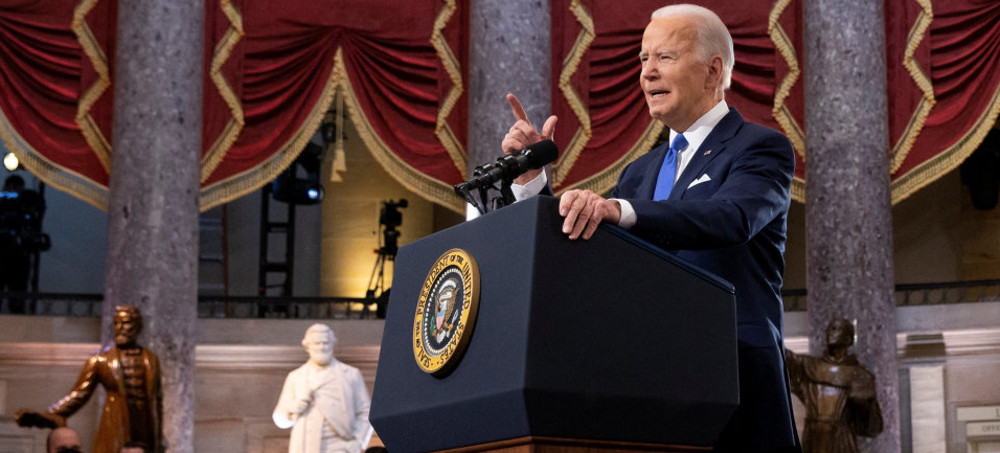Live on the homepage now!
Reader Supported News
Employers added only 199,000 jobs in December. That’s the fewest new jobs added in any month last year. In November, employers added 249,000. The average for 2021 was 537,000 jobs per month. Note also that the December survey was done in mid-December, before the latest surge in the Omicron variant of Covid caused millions of people to stay home.
But the Fed is focused on the fact that average hourly wages climbed 4.7% over the year. Central bankers believe those wage increases have been pushing up prices. They also believe the US is nearing “full employment” – the maximum rate of employment possible without igniting even more inflation.
As a result, the Fed is about to prescribe the wrong medicine. It’s going to raise interest rates to slow the economy – even though millions of former workers have yet to return to the job market and even though job growth is slowing sharply. Higher interest rates will cause more job losses. Slowing the economy will make it harder for workers to get real wage increases. And it will put millions of Americans at risk.
The Fed has it backwards. Wage increases have not caused prices to rise. Price increases have caused real wages (what wages can actually purchase) to fall. Prices are increasing at the rate of 6.8% annually but wages are growing only between 3-4%.
The most important cause of inflation is corporate power to raise prices.
Yes, supply bottlenecks have caused the costs of some components and materials to rise. But large corporations have been using these rising costs to justify increasing their own prices when there’s no reason for them to do so.
Corporate profits are at a record high. If corporations faced tough competition, they would not pass those wage increases on to customers in the form of higher prices. They’d absorb them and cut their profits.
But they don’t have to do this because most industries are now oligopolies composed of a handful of major producers that coordinate price increases.
Yes, employers have felt compelled to raise nominal wages to keep and attract workers. But that’s only because employers cannot find and keep workers at the lower nominal wages they’d been offering. They would have no problem finding and retaining workers if they raised wages in real terms – that is, over the rate of inflation they themselves are creating.
Astonishingly, some lawmakers and economists continue to worry that the government is contributing to inflation by providing too much help to working people. A few, including some Democrats like Joe Manchin and Kyrsten Sinema, are unwilling to support Biden’s Build Back Better package because they fear additional government spending will fuel inflation.
Here again, the reality is exactly the opposite. The economy is in imminent danger of slowing, as the December job numbers (collected before the Omicron surge) reveal.
Many Americans will soon need additional help since they can no longer count on extra unemployment benefits, stimulus payments or additional child tax credits. This is hardly the time to put on the fiscal brakes.
Policymakers at the Fed and in Congress continue to disregard the elephant in the room: the power of large corporations to raise prices. As a result, they’re on the way to hurting the people who have been taking it on the chin for decades – average working people.
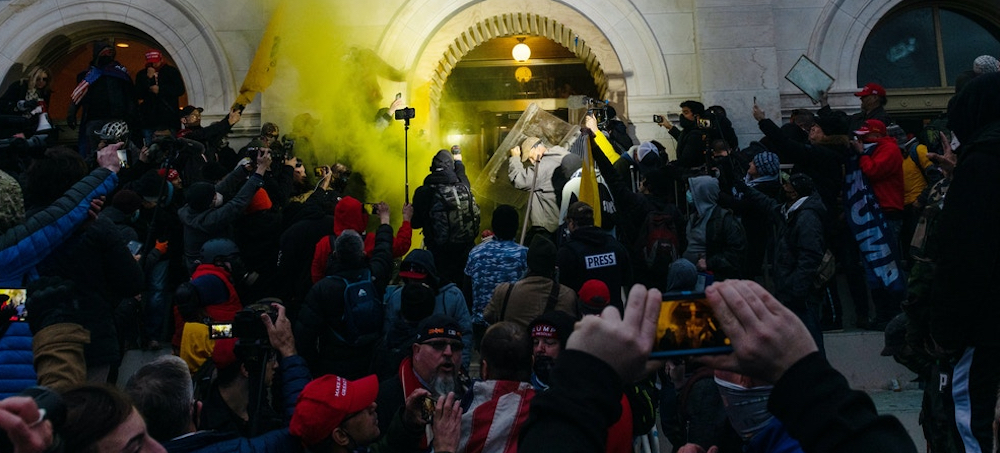 Law enforcement use a smoke grenade to push back protesters at the U.S. Capitol building in Washington, D.C., Jan. 6, 2021. (photo: Eric Lee/Bloomberg/Getty Images)
Law enforcement use a smoke grenade to push back protesters at the U.S. Capitol building in Washington, D.C., Jan. 6, 2021. (photo: Eric Lee/Bloomberg/Getty Images)
We are no longer observers of the distressed futures that afflict other people. We are those people now.
Moscow was frigid and miserable. The currency was a wreck, stores had empty shelves, and the Kremlin seemed more of a ghost ship than command center. The country’s Baltic republics were seeking independence, and when I reported on the violence that had already occurred there, struggle and darkness were all that seemed possible.
I was visiting the Soviet Union to help my overworked colleagues from the Washington Post, and on one of my first nights, I had dinner with a few correspondents who lived in the country and knew what was going on — or were supposed to. They talked of a grim era ahead in which the KGB and the Soviet Army would rule the country, because its leader, Mikhail Gorbachev, was losing control; his reforms unleashed only discontent and poverty.
A few years later, after the Soviet Union was no more, I wrote about that dinner and what would have occurred if I had known the future and told my friends about it. “If I would have suggested that, in six months, hard-liners might stage a coup against Gorbachev, and that the coup would fail and that the Soviet Union, which we all had grown up with and believed to be immortal, would die on the spot, breaking into bits and pieces with names like Kyrgyzstan and Uzbekistan, my colleagues would have laughed and wondered whether my water glass was filled with vodka.”
The astounding thing isn’t that every warning light was flashing red in the winter of 1991 and we didn’t see them. We saw those lights. Everyone did. We couldn’t miss them. We knew there was danger. The astounding thing is that we couldn’t imagine their submerged meaning, the future they indicated.
One year after the storming of the U.S. Congress, it’s a good time to recognize that we are no longer observers of the distressed futures that afflict other people. We are those people now. It is we, not the out-of-luck them, who are at the mercy of nightmares. So today is a good day to understand what that means.
Sinister Dimensions
I am a glutton for dystopia. While covering the war in Bosnia, I read J.G. Ballard’s “High-Rise,” a 1970s novel about a luxury apartment building in London where the residents devolve into war against each other, begun by a dispute over a loud party. I can’t remember why I chose to read Ballard, but the first sentences of “High-Rise” spoke to what I was learning in the Balkans about the ways societies slip, without knowing it, into the realm of nightmares:
Later, as he sat on his balcony eating the dog, Dr. Robert Laing reflected on the unusual events that had taken place within this huge apartment building during the previous three months. Now that everything had returned to normal, he was surprised that there had been no obvious beginning, no point beyond which their lives had moved into a clearly more sinister dimension.
Even as Sarajevo suffered its first casualties in April 1992, during a peace march, lots of people still couldn’t see what was in front of them: a genocidal war by Serbs against Muslims. There were plenty of flashing red lights before the shooting started, years before it started, in fact — the death of Yugoslav ruler Josip Broz Tito; the publication of a nationalist tract by the Serbian Academy of Sciences and Arts; the rise of Slobodan Milošević — but what did these things mean, what was the future they foretold?
These questions lead me to another book I read during my time in the Balkans, this one about the Balkans. Though Rebecca West’s “Black Lamb and Grey Falcon” is a classic that was published in 1941 and elicits some groans nowadays for its Serbian orientation, it has a line from its narrator that remains a truth bomb: “In writing this book I have been struck again and again by the refusal of destiny to let man see what is happening to him, its mean delight in strewing his path with red herrings.” These red herrings are somewhat universal: the plans we have, the dreams we covet, the delusions we nurture.
It would be wrong to punish ourselves over our inability to see the future. Who could be expected to realize that it wasn’t just a reality TV star but the next president of the United States who rode down an escalator at Trump Tower on June 16, 2015, and implausibly announced, as he described Mexicans as rapists, that he wanted to be the 45th commander in chief? For that matter, how could a young reporter in Budapest in 1990 foresee that the cool 20-something anti-communist activist he interviewed from time to time, just elected to parliament, would become a racist and antisemitic prime minister one day? (The cool kid was Viktor Orbán, and the young reporter was me.)
Red herrings, everywhere.
Patriot Games
The warning lights have been flashing in America for a long time. We could start in 1619 or 1789 and jump forward 200 years to Lee Atwater, Ronald Reagan, and Rush Limbaugh, for instance. What I saw in the Balkans makes me think the emergence of Fox News in 1996 was the trigger mechanism for our current predicament. It’s hard to overstate the necessity, if your goal is national madness, of mainstreaming racism and hatred — a function that was fulfilled by Radio Television of Serbia before the Bosnia war.
The late Miloš Vasić, one of the most fearless journalists in Serbia during the 1990s, chronicled his homeland’s descent into extremism and corruption. Vasić knew that the great unwinding in the former Yugoslavia was not a unique phenomenon. “All it took was a few years of fierce, reckless, chauvinist, intolerant, expansionist, war-mongering propaganda to create enough hate to start the fighting among people who had lived together peacefully for 45 years,” he said in 1993. “You must imagine a United States with every little TV station everywhere taking exactly the same editorial line — a line dictated by David Duke. You, too, would have war in five years.”
The Murdoch family, which owns Fox News, has required more than five years to create an actual war in the U.S., but the network’s millionaire hosts are not without results, and they remain hard at work encouraging their mostly white viewers to be the worst they can be and feel like patriots. I think Vasić, who died last year, would have a lot of wisdom to share about our January 6 anniversary, and some of it would revolve around Americans finally seeing they are not the well-mannered exception to internal calamity that they liked to believe themselves to be.
While it’s too much to expect we can foretell our future, we can know from the multitude of flashing lights that we have slipped into what Ballard would instantly diagnose as a sinister dimension. And our journey is not complete. Aleksandar Hemon, the Bosnian American writer, put it well: “What the actual resolution might look like, I fear to envision, but I know it will not resemble anything Americans can remember or dare to imagine.”
The fortunate thing is that we don’t need to know precisely what the future holds. History, and the presence of 20 million assault rifles in America, provides us with enough data to know the outlines of what’s ahead if we continue to pretend that nightmares are for other countries, not ours.
 Aung San Suu Kyi. (photo: AFP)
Aung San Suu Kyi. (photo: AFP)
Suu Kyi was convicted last month on two other charges and given a four-year prison sentence, which was then halved by the head of the military-installed government.
The cases are among about a dozen brought against the 76-year-old Nobel Peace Prize laureate since the army seized power last February, ousting her elected government and arresting top members of her National League for Democracy party.
If found guilty of all the charges, she could be sentenced to more than 100 years in prison.
Suu Kyi's supporters and independent analysts say the charges against her are contrived to legitimize the military's seizure of power and prevent her from returning to politics.
Monday's verdict in the court in the capital, Naypyitaw, was conveyed by a legal official who insisted on anonymity for fear of being punished by the authorities, who have restricted the release of information about Suu Kyi's trials.
He said she was sentenced to two years in prison under the Export-Import Law for importing the walkie-talkies and one year under the Telecommunications Law for possessing them. The sentences are to be served concurrently. She also received a two-year sentence under the Natural Disaster Management Law for allegedly violating coronavirus rules while campaigning.
Suu Kyi was convicted last month on two other charges — incitement and breaching COVID-19 restrictions — and sentenced to four years' imprisonment. Hours after that sentence was issued, the head of the military-installed government, Senior Gen. Min Aung Hlaing, reduced it by half.
Suu Kyi's party won a landslide victory in a 2020 general election, but the military claimed there was widespread electoral fraud, an assertion that independent poll watchers doubt.
Since her first guilty verdict, Suu Kyi has been attending court hearings in prison clothes — a white top and a brown longyi skirt provided by the authorities. She is being held by the military at an unknown location, where state television reported last month she would serve her sentence.
The hearings are closed to the media and spectators and the prosecutors do not comment. Her lawyers, who had been a source of information on the proceedings, were served with gag orders in October.
The military-installed government has not allowed any outside party to meet with Suu Kyi since it seized power, despite international pressure for talks including her that could ease the country's violent political crisis.
It would not allow a special envoy from the Association of Southeast Asian Nations, of which Myanmar is a member, to meet her. The refusal received a rare rebuke from fellow members, who barred Min Aung Hlaing from attending its annual summit meeting.
Even Cambodian Prime Minister Hun Sen, who took over as the regional group's chair for this year and advocates engagement with the ruling generals, failed to meet her last week when he became the first head of government to visit Myanmar since the army's takeover.
The military's seizure of power was quickly met by nonviolent nationwide demonstrations, which security forces quashed with deadly force, killing over 1,400 civilians, according to a detailed list compiled by the Assistance Association for Political Prisoners.
Peaceful protests have continued, but amid the severe crackdown, an armed resistance has also grown, to the point that U.N. experts have warned the country could be sliding into civil war.
"The Myanmar junta's courtroom circus of secret proceedings on bogus charges is all about steadily piling up more convictions against Aung San Suu Kyi so that she will remain in prison indefinitely. Senior Gen. Min Aung Hlaing and the junta leaders obviously still view her as a paramount political threat who needs to be permanently neutralized," said Phil Robertson, deputy Asia director for Human Rights Watch.
"Once again, Aung San Suu Kyi has become a symbol of what is happening to her country and returned to the role of political hostage of military hell-bent on controlling power by using intimidation and violence," Robertson said in a statement. "Fortunately for her and the future of Myanmar, the Myanmar people's movement has grown well beyond just the leadership of one woman, and one political party."
Suu Kyi was charged right after the military's takeover with having improperly imported the walkie-talkies, which served as the initial justification for her continued detention. A second charge of illegally possessing the radios was filed the following month.
The radios were seized from the entrance gate of her residence and the barracks of her bodyguards during a search on Feb. 1, the day she was arrested.
Suu Kyi's lawyers argued that the radios were not in her personal possession and were legitimately used to help provide for her security, but the court declined to dismiss the charges.
She was charged with two counts of violating coronavirus restrictions during campaigning for the 2020 election. She was found guilty on the first count last month.
She is also being tried by the same court on five counts of corruption. The maximum penalty for each count is 15 years in prison and a fine. A sixth corruption charge against her and ousted President Win Myint in connection with granting permits to rent and buy a helicopter has not yet gone to trial.
In separate proceedings, she is accused of violating the Official Secrets Act, which carries a maximum sentence of 14 years.
Additional charges were also added by Myanmar's election commission against Suu Kyi and 15 other politicians in November for alleged fraud in the 2020 election. The charges by the military-appointed Union Election Commission could result in Suu Kyi's party being dissolved and unable to participate in a new election the military has promised will take place within two years of its takeover.
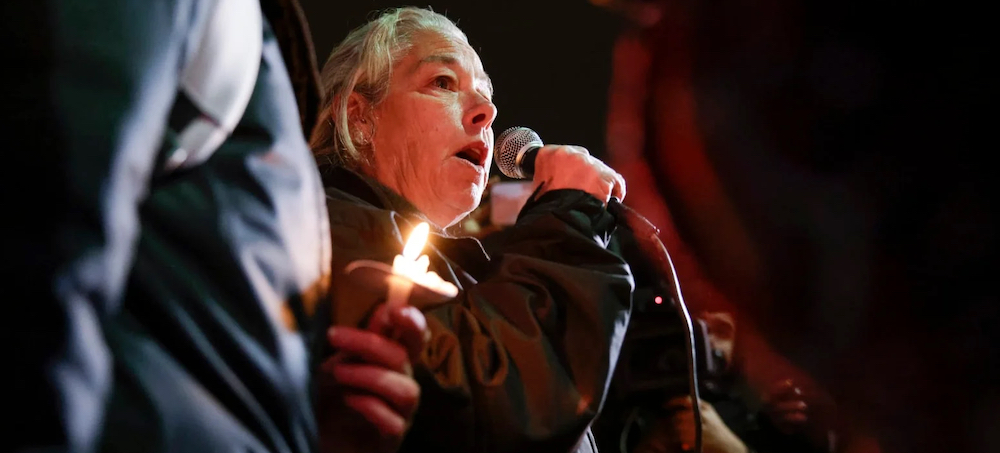 Babbitt's mother, Michelle Witthoeft. (photo: Samuel Corum/Getty Images)
Babbitt's mother, Michelle Witthoeft. (photo: Samuel Corum/Getty Images)
The host of the state TV special took to the halls of the Capitol building to deliver a conspiracy-fueled extravaganza on Russian airwaves.
A year earlier, Davydov had been embedded amongst the would-be insurrectionists, describing them as “rebels” and showcasing their bloody wounds on camera. State media coverage that followed included interviews with Russian-speaking bloggers who took part in the rally preceding the riot—all in an effort to present the rioting as a false flag operation, set up by the Democrats to impeach and discredit former U.S. President Donald Trump. The same long-discredited propaganda narrative is still favored by the Kremlin’s pet networks.
With a Russian state media crew filming inside the Capitol building, Davydov pointed out the spot where rioter Ashli Babbitt was shot. He introduced Michael Leroy Byrd, the Capitol police officer who shot her, as “the black policeman who pulled the trigger, but was never punished for shooting an unarmed person.” Davydov tracked down Babbitt’s mother, Michelle Witthoeft, asking her on camera whether anyone representing authorities ever apologized to her for the death of her daughter. Witthoeft replied saying she received no apologies and insisted that someone would have to pay for “murdering” Ashli.
The Sunday broadcast also featured ‘coverage’ of a rally outside a jail in Washington, D.C., where some of the Jan. 6 insurrectionists are being held. There, the Russian journalist interviewed Trump supporters who aired grievances about conditions in the jailhouse. Meanwhile, Russia is grappling with yet another scandal involving accusations of gruesome torture in Russian prisons, condoned and directed by prison officials. When asked about it, Russian President Vladimir Putin had claimed that prison conditions in Western nations, including the United States, are worse than in some third-world countries.
The title of the Rossiya-1 TV special, “Stolen Elections: Half of Americans Still Don’t Believe in Biden’s Victory,” is aligned with a familiar narrative on Russian airwaves and social media platforms. Last week, Russian parliament member Alexey Pushkov wrote on his Telegram channel: “[U.S. President Joe Biden] will not be able to restore the old image of the United States as a law-based, transparent, democratic nation. Even before, this image was false, but after the scandalous elections of 2020 it collapsed completely... America looks like a house of cards that is falling apart.”
The program showcased interviews with several Trump supporters who raged about “stolen elections” and alleged instances of “election fraud.” Sitting down with Russian state media, Arizona congressional candidate Jeff Zink described instances of “suspicious” election records he claimed to have personally observed. Zink told the Kremlin-funded state TV channel: “We know that the elections were stolen, so my son and I went to Washington on January 6th.” Zink’s son, Ryan Scott Zink, is facing federal charges of obstructing an official proceeding, knowingly entering or remaining in a restricted building, violent entry and disorderly conduct.
Throughout the broadcast, Davydov sympathetically downplayed the actions of Capitol rioters by claiming that they merely “decided to enter the temple of democracy,” describing the lawmakers under attack as “representatives hiding from their own voters.” The state TV reporter described the Jan. 6 Commission as a committee “composed of Democrats and several Republicans who hate Trump,” using a clip from Fox News to corroborate this perspective.
Fox News is one of the most-frequently showcased American channels in Russia, unquestionably favored by state media. When Putin latched on to the coverage of Ashli Babbitt—and Tucker Carlson reiterated the president’s questions on his show—Kremlin propagandists described it as a “bullseye” accomplishment for Moscow’s ongoing efforts to influence public opinion in the United States.
The conclusion of the Jan. 6 special on Russian state television was just as telling as the title of the segment. Davydov noted: “Officially, Biden won the election, but he could not convince the Americans of his fair victory… A year has passed, the two Americas—supporters and opponents of Trump—remain in hand-to-hand combat and continue to clash.” Davydov concluded his reportage on an ominous note: “In the next presidential election, neither side will agree to admit defeat.”
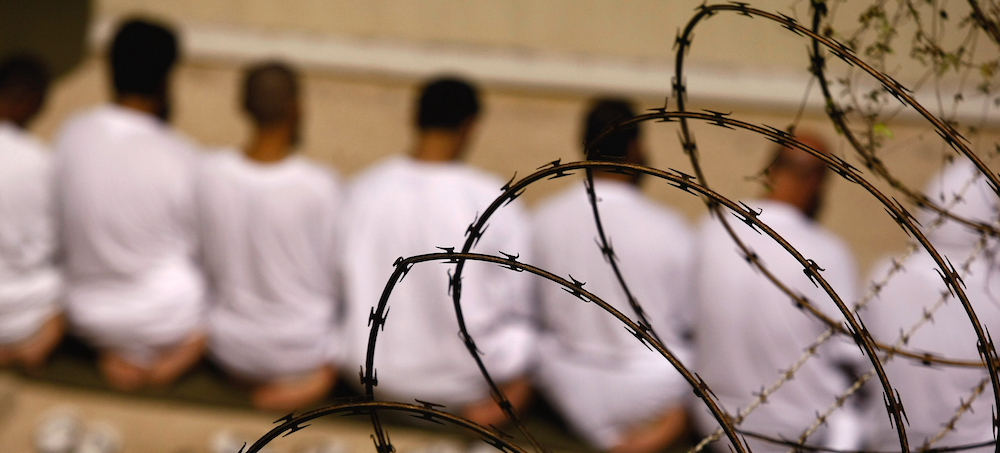 The Guantanamo Bay Detention Camp. (photo: CNN)
The Guantanamo Bay Detention Camp. (photo: CNN)
Despite how many times, under how many presidential administrations, I have been disappointed, I hold out hope
It may surprise you to know that I think America has a very good justice system. But it is only for Americans. In the cases of those like me, justice is not something that interests the US. I wish that people understood how Guantánamo is distinct.
In Guantánamo, the torture we are exposed to is not isolated to the interrogation rooms; it exists in our daily lives. This intentional psychological torture is what makes Guantánamo different. There is interference in every aspect of my existence – my sleep, my food, my walking.
For the first nine years at Guantánamo, I was held in solitary confinement. It was a harsher, more violent place then. The communal blocks that opened in 2010 made a difference, but the deliberate mental torture remains the same. The rules change constantly and without warning. Some guards and some administrations are more cruel than others.
Imagine you’re watching TV and someone comes up behind you and starts lightly kicking you. If it only happens for a little bit, it won’t be a problem. But say they just keep kicking you, endlessly, no matter how often you tell them to stop, and there is nothing you can do about it. Imagine what kind of torture that would be.
The only freedom I have here is to protest. On aggregate, I have been on hunger strike for seven years. Seven years, feeling that I am not dead but also not alive. I believe in facing my jailer. They control my body, but not my heart. They tried to prevent me from learning, but I have anyway.
Painting has been my relief. I am proud of my art. Perhaps you have seen the few pieces that I have been able to get out of here? When they were exhibited in New York, I thought of the paintings looking out on to the elegant streets and the big buildings, and of the people in their nice city looking in, and how they cannot possibly imagine what our lives are like.
But even this relief has been taken from me. My captors refuse to let me send my art out of the prison. They have made it harder to make photocopies of what I paint, so I can’t even show my attorneys. So it becomes a burden. When I paint I feel a pain in my heart, knowing that the work I am doing is never going to be seen by anyone else.
When President Obama said he would close Guantánamo, we were optimistic and believed him. I hope that President Biden will complete that promise. He should do everything he can to shut the prison – not for us, but for the US.
Other countries used to look up to the USfor human rights, and they don’t any more – any claim by the US to defend human rights rings hollow. When Biden criticized Russia, Putin responded “What about GTMO?” Closing it will begin to repair the damage to America’s reputation.
The golden years of my life have been wasted in Guantánamo. If what happened to me happened in America, they would give me millions of dollars. Because I’m in Guantánamo, because I’m Arab, because I’m Yemeni, nobody cares.
But I want you to know I am a hopeful person. I don’t know where I will go, or what I will do, but there is another life for me, outside this prison.
 A student in a classroom. (photo: Ina Fassbender/AFP)
A student in a classroom. (photo: Ina Fassbender/AFP)
The deal means students can return to school on Wednesday, Chicago Mayor Lori Lightfoot (D) said in a statement. Lightfoot told reporters that the city would expand testing and enhance contact tracing efforts, as well as provide criteria for closing schools with outbreaks, to address the concerns held by the Chicago Teachers Union, whose members have expressed fear about getting infected in the classroom amid a nationwide surge fueled by the omicron variant.
Last week, the union had voted to return to remote learning, and the school system responded by canceling classes, making Chicago one of few U.S. cities without in-person classes after winter break.
“Someone asked who won and who lost,” Lightfoot said, reading aloud a statement to reporters. “No one wins when our students are out of a place where they can learn the best and where they’re safest,” she said.
Nearly two-thirds of the teachers union’s House of Delegates voted to return to schools, said Jesse Sharkey, the union president. The decision will be subject to ratification by the rest of the union’s 25,000 members.
Chicago teachers have demanded enhanced safety measures in schools, such as KN95 masks for educators and students, more frequent testing, and the option to take an unpaid leave of absence if an employee’s medical condition puts them at higher risk of severe illness from covid-19. The teachers also proposed standardized criteria for pausing in-person learning amid outbreaks. Without such accommodations, teachers have said, the city should transition classes to remote learning.
One major complaint from teachers was that the city had not set up a system to effectively test students for the virus before they returned to buildings. Other communities have staged effective “test-to-return” programs, and in Chicago, the district encouraged students to take coronavirus tests near the end of the winter break, but thousands of those tests were deemed invalid. Some samples were labeled unsatisfactory after delayed deliveries to labs because of weather and holiday traffic.
But municipal officials have resisted teachers’ demands to hold remote classes, which Lightfoot said puts too big a strain on working parents and can set students back in their education. During the last round of remote learning, Chicago schools lost contact with about 100,000 students — nearly a third of the district’s students, she said.
The standoff in Chicago, the nation’s third-largest district, was reminiscent of battles last school year between teachers unions, which saw in-person school as too dangerous, and school systems, which were trying to reopen buildings. This year, however, Chicago was an outlier.
The vast majority of school districts are now operating in person. However, many have struggled to cover classes for absent teachers, and some have seen large numbers of students out after testing positive or being exposed to the virus.
The fact that so many schools have stayed open represents a resolve on the part of school districts to try to avoid the academic and social harms of remote education that dominated the 2020-21 school year. Nonetheless, last week, about 5,400 schools were disrupted at some point, according to Burbio, a data firm. That’s the highest total this calendar year but a small fraction of about 100,000 public schools in the United States.
Last week, some schools shifted to remote learning because of high covid numbers, others delayed the start of school to allow for testing of students before they returned from winter break, and still others were interrupted by a snowstorm. But no other significant district saw the sort of acrimony or standoff that unfolded in Chicago.
The number of schools disrupted on Monday fell from more than 3,600 on Friday to slightly more than 1,300, according to preliminary data from Burbio.
 The National Toxicology Program added eight new substances to a growing list of recognized cancer-causing agents found in many consumer products and water supplies. (photo: John Walker/The Fresno Bee)
The National Toxicology Program added eight new substances to a growing list of recognized cancer-causing agents found in many consumer products and water supplies. (photo: John Walker/The Fresno Bee)
They include a bacterial infection, a flame retardant, and six byproducts from water purification.
Among the new additions are a bacterium, a flame retardant, and six byproducts from water purification, bringing the total number of listed carcinogens up to 256. Other substances and activities listed include HIV and cobalt, which were added in 2016, as well as tobacco smoking, solar radiation, mustard gas, and asbestos.
The NTP’s congressionally mandated reports on carcinogens, intended to “help people make informed decisions about their own health,” are published periodically for the secretary of Health and Human Services as new information becomes available. The new report was released as the U.S. marked the 50th anniversary of the National Cancer Act, legislation that then-President Richard Nixon said would initiate a national “war on cancer” — by then the nation’s second leading cause of death.
According to 2019 data from the Centers for Disease Control and Prevention, cancer still sits in second place as a leading cause of mortality for U.S. residents, killing nearly 600,000 people each year. “Cancer affects almost everyone’s life, either directly or indirectly,” said Rick Woychik, director of the National Institute of Environmental Health Sciences and the NTP, in a statement. Only heart disease claims more Americans’ lives every year. In 2020, COVID-19 was the third leading cause of death.
Although the NTP’s reports on carcinogen do not directly determine public policy, they can inform it indirectly by helping policymakers identify substances in need of regulation. They “provide important information to members of Congress, regulatory agencies, and others who can use it to make informed decisions that protect the health of U.S. residents,” Ruth Lunn, director of the Office of the Report on Carcinogens, told Grist.
The NTP breaks up listed carcinogens into two categories: those that are “known” to cause cancer in humans, and those that are “reasonably anticipated” to do so. Just one agent identified in the NTP’s latest report received the former, more significant classification: chronic infection from H. pylori, a stomach bacterium found in contaminated drinking water. According to research from the University of Missouri, Kansas City, this cancer-causing bacterium disproportionately impacts nonwhite populations — potentially due to poorer access to clean drinking water. And following treatment, further research suggests that these same groups are less likely to receive critical “eradication testing” to ensure the bacteria has been fully eliminated from their bodies.
David Leiman, an assistant professor of medicine at Duke University, said that adding H. pylori to the NTP’s list of carcinogens could help draw attention to these inequities. “I hope that it would provide some urgency both from practitioners and also for patients,” he said.
In addition to H. pylori, the NTP recognized seven more substances as “reasonably anticipated” to cause cancer in humans. These include antimony trioxide, which is often used in plastic production and flame retardants for consumer products, and six haloacetic acids that may be produced during chlorine-based disinfection processes for drinking water. According to the NTP’s press release, some 250 million Americans may be exposed to water systems tainted with these substances. Although experts say the risks of drinking untreated water outweigh the risks from haloacetic acids, prolonged exposure to high concentrations can lead to rectal, colon, and bladder cancer, as well as developmental and reproductive problems.
Both antimony trioxide and the suite of haloacetic acids have previously been recognized by state and federal agencies as hazardous substances. Some places like California have imposed bans or tight restrictions on the use of antimony trioxide in consumer products, and the Occupational Safety and Health Administration has long regulated permissible outdoor exposure to it. The Environmental Protection Agency has also recognized haloacetic acids as potential human carcinogens since the early 2000s, but some advocacy groups have called for tighter regulations. “Legal does not necessarily equal safe,” the nonprofit Environmental Working Group said in a 2021 report that found elevated levels of water contaminants — including haloacetic acids — in drinking water supplies in Columbia, Missouri.
Even as the 15th report on carcinogens was released last month, the NTP is evaluating the carcinogenicity of additional substances for future reports: wood smoke, for example, as well as halogenated flame retardants and polycyclic aromatic hydrocarbons — a class of chemicals that are released when fossil fuels are burned.
Follow us on facebook and twitter!
PO Box 2043 / Citrus Heights, CA 95611

